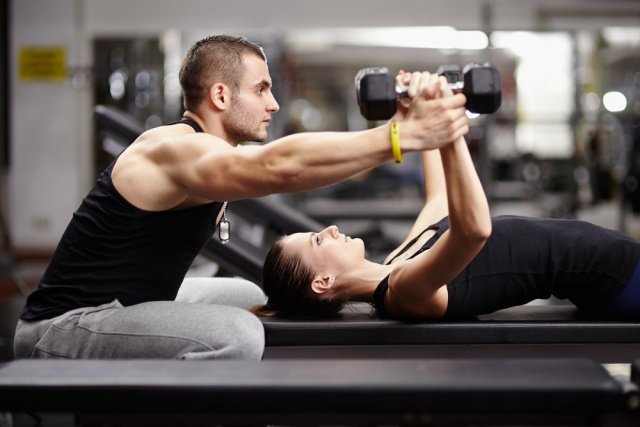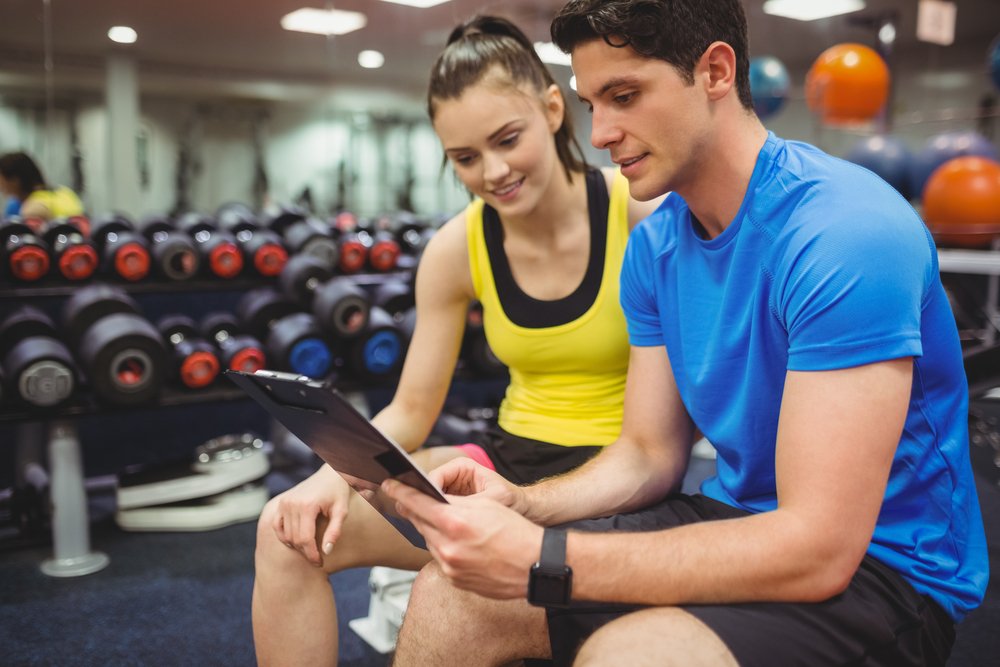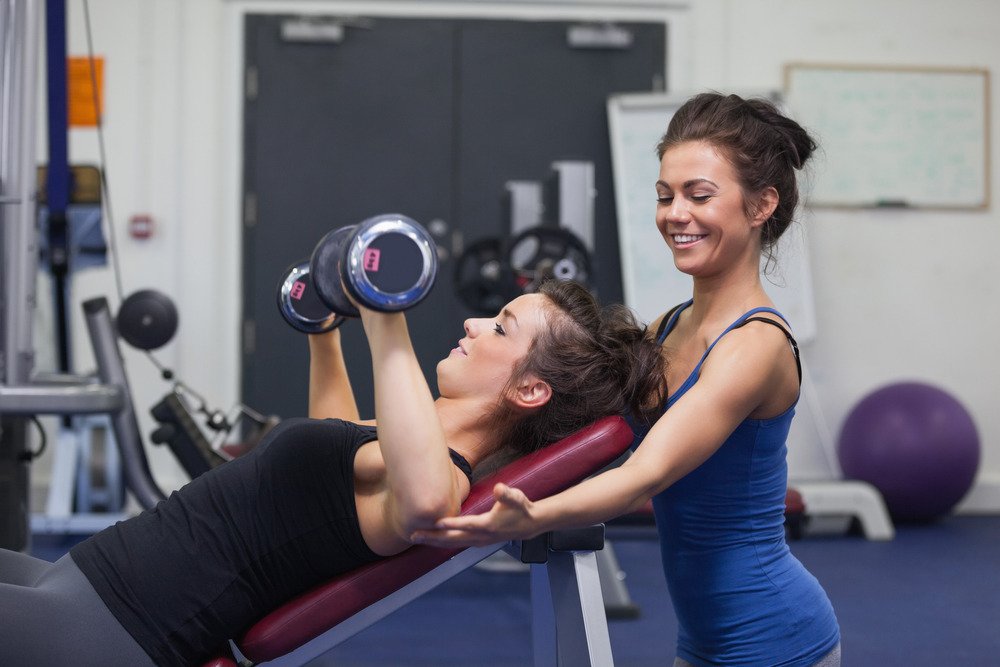How to choose the right fitness mentor: tips for beginners

People who have decided to seriously go in for sports, but do not know how and what to do, cannot do without a fitness trainer. A professional mentor will help you create the right training plan and schedule, master the technique of doing exercises, and also tell you how to adjust your diet. How to choose a qualified fitness instructor so that classes give results, and money and time are not wasted?
First you need to decide on a sports club – it is desirable that it be closer to home. Otherwise, a long road and a simple traffic jam will quickly reduce the desire to play sports to zero. When the institution is selected, you can then determined who should be your mentor. Here you need to pay attention to a number of points: his professionalism, qualifications, physical form, approach to work and manner of communication, as well as the cost of services.
Why do you need a fitness trainer?

Many beginners, coming into the sport, think about whether they need a fitness coach , or can they do without one. Unfortunately, in practice, it turns out that training sessions conducted by inexperienced athletes without a professional mentor are unproductive. There are several reasons for this:
Choosing the wrong fitness program.
Often, those who want to lose weight come to the gym and start doing power sports. Conversely, people who want to build muscle choose cardio.
Technology violation.
This is the first reason for injury and lack of effect from doing sports. A fitness instructor will not only help you master the correct technique, but also insure you during weight training and tell you how to vary the exercises to suit your abilities and needs.
Lack of incentive.
A professional coach must be a motivator. In the course of communication, he should be able to select the right words that stimulate high-quality work and the desire to play sports.
Who is better as a coach – a man or a woman?
Many novice athletes attach great importance to this factor. Women choose women as trainers, and the representatives of the stronger sex prefer male instructors. In fact, the professionalism of a mentor does not depend on his/her gender. A female trainer may well conduct fitness classes for men, and vice versa.
Professional training and exercise program
Of course, having come to the sports club, you need to familiarize yourself with the presence of the chosen coach of special education and a document confirming this. However, as practice shows, a large number of diplomas and certificates may have nothing to do with the qualifications and skills of a fitness instructor. Today there are many organizations that issue such documents for money.
In addition, often coaches become people who have achieved success in weight loss on their own. Or those for whom strength or aerobic fitness was a hobby. Communication is the best way to determine the professionalism of a mentor. He must have an understanding of human anatomy, muscle function, metabolism, know how to calculate the load and draw up a training program, have knowledge about proper nutrition, etc.
External data of a fitness instructor

Volumetric muscles, excellent physical shape and a dazzling smile of a trainer are not a guarantee of his professionalism. It is important to remember that all of these qualities can be a condition of employment, the result of good genetics, personal care, regular exercise, and even the use of illegal drugs.
Paying attention to the appearance of a fitness instructor, you should analyze the correspondence between age and his physical form. If a coach is about 50 years old, and he is not particularly slender and athletic, this does not mean that he has no competence in matters of sports. But the young instructor, who is far from being in the best physical shape, should be alarming.
Professional skills
For fitness to give visible results, you need to choose a mentor with experience, and not with a mediocre attitude to sports. Again, communication will help to learn about his skills. Firstly, in the course of a personal conversation, it is necessary to find out from the coach himself how many years he has been working in this institution, and whether he worked somewhere before. Secondly, you can talk with his wards and find out how competent this specialist is and whether it is worth contacting him.
Approach to work
At the first meeting before starting classes, a professional fitness instructor must ask a novice athlete the following questions:
- Are there any health problems and any diseases?
- Have you had previous injuries and is there a tendency to injury?
- What are the goals of fitness and what do you want to achieve in the near future?
After the interaction, the mentor should suggest a warm-up, light exercise, or flexibility test. All this will help him determine the level of physical fitness of the athlete and in the future draw up the right training plan.
Manner of communication
You should also pay attention to this, since the effectiveness of classes also depends on the comfort in communicating with the trainer. Someone needs a “soft” mentor who will not annoy with his harshness, while someone, on the contrary, is more “hard”, who knows how to give a psychological and motivational impetus at the right time.
Price for services
An hour of training with a qualified, educated and experienced fitness instructor is much more expensive than training with an amateur or aspiring mentor. What does the athlete pay for?
- experience;
- personal approach;
- time;
- a fitness program and exercises tailored to the needs and anatomy of a person;
- ensuring safety during training.
If there is a desire to study with such an instructor, but the cost of the subscription “bites”, you can try to attend group classes. Better from 2-3 people, no more. Otherwise, the mentor will not physically have time to keep track of all the wards.
What to focus on during the course?
So, acquaintance with the trainer and the first weeks of classes are over. Now you need to pay attention to the following points:
- results achieved: improvement in physical fitness, lost kilograms, degree of increase in endurance, strength, etc .;
- general well-being.
If there is no moral and physical comfort when working with a fitness trainer, or there is no result from training, you should think about whether to change a mentor. If everything is good, the instructor helps you achieve the goal, move on and shows interest in success – you made the right choice.
